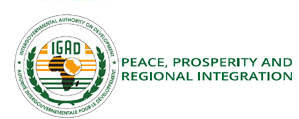SADC - Macroeconomic Policy Convergence
Important milestones in terms of strengthening SADC’s regional integration agenda include macroeconomic convergence. The Memorandum of Understanding on Macroeconomic Convergence that was signed in 2002, and is annexed to the Protocol on Finance and Investment signed in 2006, stipulates that member States should converge and cooperate on economic policies to promote stability and economic growth[1].
 In April, 1980 the Southern Africa Coordination Conference (SADCC) was created to advance the cause of national political and economic liberation in Southern Africa. In July 1981, a Memorandum of Understanding came into force which formalized the establishment and operations of the organization.
In April, 1980 the Southern Africa Coordination Conference (SADCC) was created to advance the cause of national political and economic liberation in Southern Africa. In July 1981, a Memorandum of Understanding came into force which formalized the establishment and operations of the organization.